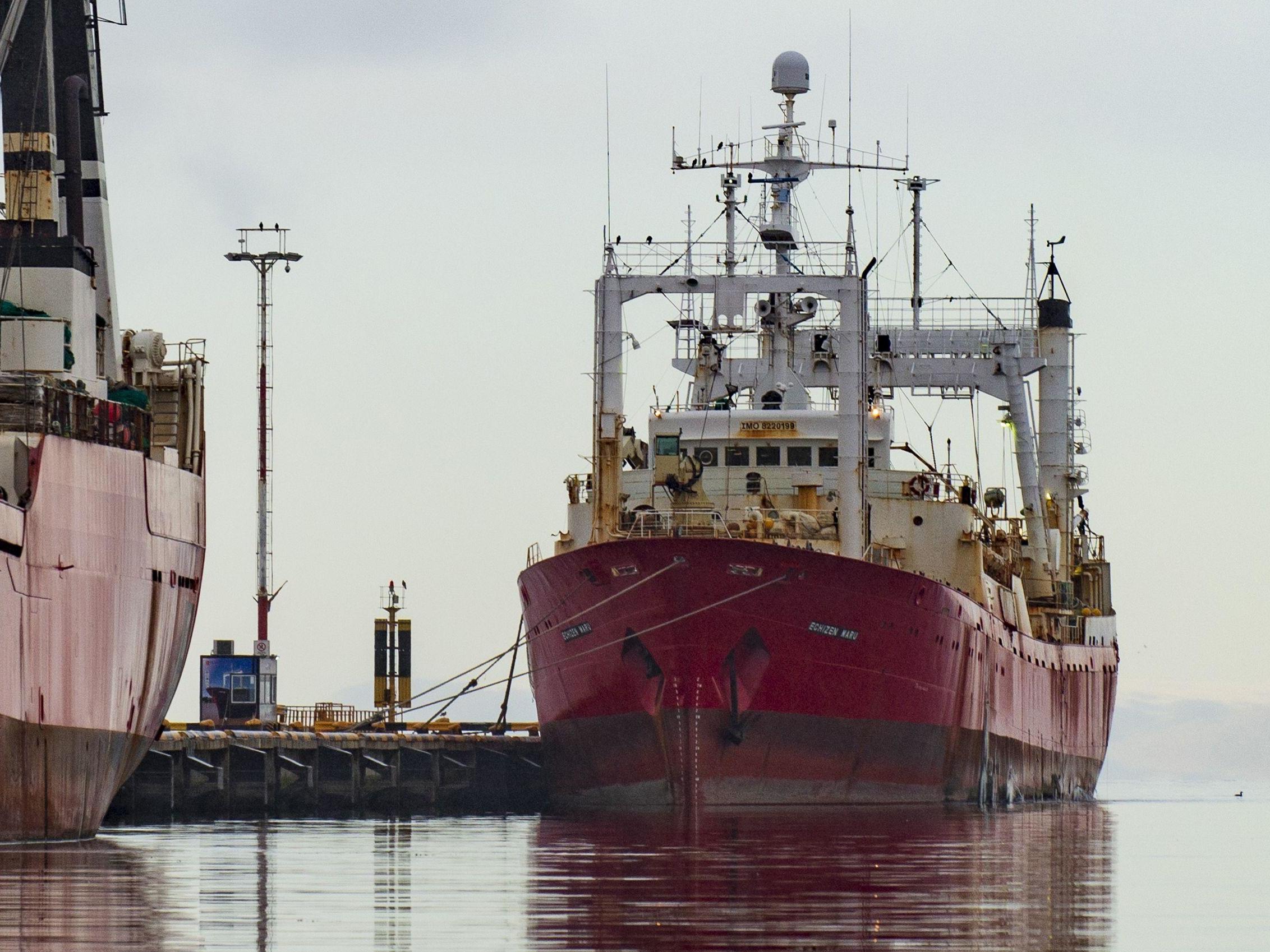Coronavirus: Fishermen test positive despite spending 35 days at sea and testing negative before they left
All but four onboard trawler contract virus during weeks of isolation

Your support helps us to tell the story
From reproductive rights to climate change to Big Tech, The Independent is on the ground when the story is developing. Whether it's investigating the financials of Elon Musk's pro-Trump PAC or producing our latest documentary, 'The A Word', which shines a light on the American women fighting for reproductive rights, we know how important it is to parse out the facts from the messaging.
At such a critical moment in US history, we need reporters on the ground. Your donation allows us to keep sending journalists to speak to both sides of the story.
The Independent is trusted by Americans across the entire political spectrum. And unlike many other quality news outlets, we choose not to lock Americans out of our reporting and analysis with paywalls. We believe quality journalism should be available to everyone, paid for by those who can afford it.
Your support makes all the difference.Argentinian health officials are scrambling to understand how nearly every crew member of a ship which spent 35 days at sea were found to have contracted coronavirus upon returning to land.
All 61 sailors aboard the trawler, Echizen Maru, tested negative for the virus upon departure from Buenos Aires in late May.
They were then flown to the Ushuaia, a typical jumping-off point for Antarctic voyages nicknamed “the end of the world”, where they were quarantined in a hotel for two weeks before setting sail.
After weeks at sea, some crew members started to display symptoms typical to Covid-19, and the ship returned to port.
All but four aboard the ship tested positive upon their return, local health authorities in the Tierra del Fuego province said on Monday. Two have been hospitalised in Ushuaia Regional Hospital, one of whom is receiving oxygen.
Now officials are struggling to piece together how the disease reached the isolated ship.
“It’s hard to establish how this crew was infected, considering that for 35 days, they had no contact with dry land,” Alejandra Alfaro, the director of primary health care in Tierra del Fuego, told Agence France-Presse. “Supplies were only brought in from the port of Ushuaia.”
“[The virus] entered somewhere. We have to think that it was human contact or contact with merchandise, products, supplies,” Ms Alfaro told local media on Monday.
“We know that for 35 days, no one, or any new input, got on the ship. Obviously something happened, perhaps there has been some degree of contagion inside the boat that was not registered.”
Ms Alfaro added that the outbreak may have been exacerbated by the fishermen’s hardiness and acclimatisation to rough conditions, in that they may have spent significant time in discomfort without recognising or acknowledging symptoms.
It is also possible that the two-week quarantine period was insufficient, with several studies having suggested that in rare cases – roughly one in every 100 – the incubation period can extend beyond 14 days.
But given the length of time before symptoms were reported onboard, the hospital’s head of infectious diseases, Leandro Ballatore, told AFP he believed this is a “case that escapes all description in publications, because an incubation period this long has not been described anywhere”.
In a statement, the local health minister Judit Di Giglio said that, by Wednesday, officials would have the results of tests, “which will allow us to know how many antibodies the patients have to know if the infection has been newer or older”.
Argentina has so far identified more than 100,000 cases of coronavirus, with an official death toll nearing 2,000.
Join our commenting forum
Join thought-provoking conversations, follow other Independent readers and see their replies
Comments